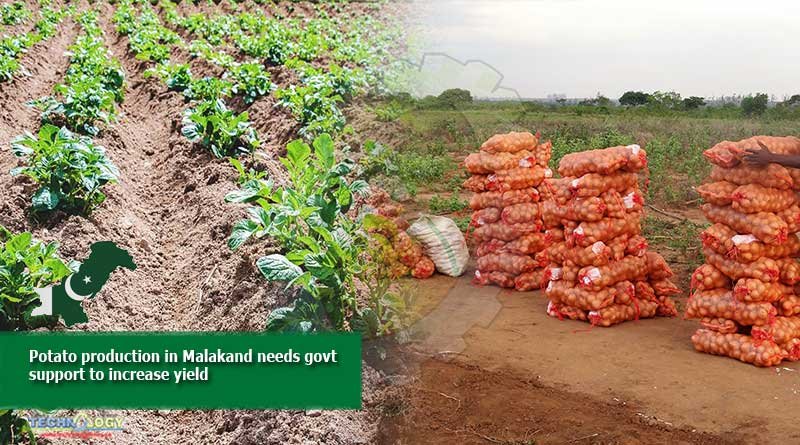Potato production is badly affected due to climate change, lack of proper road infrastructure and the rising cost of fertilizers and seeds, especially the Malakand division.

Former member provincial assembly Syed Jaffer Shah told Pakistan Today that the potato production in three districts of Malakand division can be increased with government support. Shah said that there is no communication or advisory system for local farmers. He added that floods have destroyed the acres of crops, but the government made any effort in resolving this issue so far.
“The agricultural land in these areas has gradually turned into a pile of rocks due to floods,” said Shah. He asked the agriculture department to clear the area of rocks brought by floods.
Shafiqul Rehman, a landowner from Gabral Swat, said that over the last two years there has been a 30 per cent reduction in growers’ revenues due to the increase in seeds and fertilizers prices. Gabral has been supplying 200,000 kg potatoes to different markets of the country regularly, he said, but climate change is also affecting potatoes production.
Fertilizers and seeds are more expensive due to extra transportation charges, he added. Due to poor road infrastructure, trucks charge Rs40,000 to transport goods to Rawalpindi from Gabral.
Agricultural expert Dr Noor Habib told Pakistan Today that potatoes grown in Swat, Upper Dir and Chitra districts comprise 15% of the total production of the country. He added that potatoes in these districts are produced in summer when there is no other production in the country.
He added that climate change has decreased crop production in these areas, but the changes can be countered through better seeds and training for the local farmers.
Potato production in Pakistan regularly produces 1.5 million tonnes of surplus potatoes, which can be exported to Saudi Arabia, the United Arab Emirates, Russia and the Middle Eastern countries, according to economic and agricultural experts.
Due to lack of storage, processing and other basic facilities, 10 to 30 per cent of all agricultural commodities are wasted every year. There is a need for immediate efforts to help prevent these losses.
The article is originally published at Pakistan Today.
